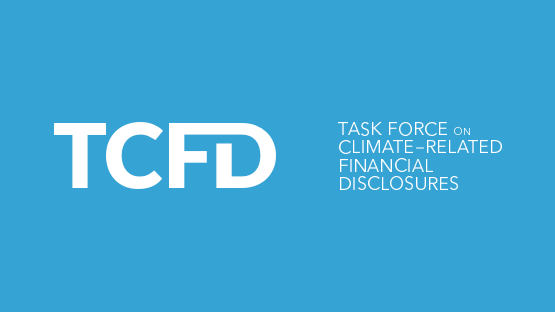Ecora recognises the important role that it can and must play in supporting the energy transition
At a corporate level, we have a low footprint but continually look at ways to improve our energy efficiency and carbon reduction. Ecora is also committed to publicly disclosing its climate-related risks and opportunities and its approach in relation to managing such climate-related impacts that arise from our business and our investments.
Ecora commits to reduce absolute Scope 1 and 2 GHG emissions 46% by 2030 from a 2019 base year, and to measure and reduce its Scope 3 emissions.

Corporate level emissions
At the start of 2024, we began collating the Group’s greenhouse gas emissions inventory following the Greenhouse Gas Protocol Corporate Accounting and Reporting Standard and Scope 2 Guidance for Ecora’s Scope 1, 2 and 3 (upstream) emissions at the corporate level.
| Climate change and energy | 2024 | 2023 | 2022 | 2021 |
| Performance indicator | ||||
| Direct (Scope 1) GHG emissions | 0 | 0 | 0 | 0 |
| Indirect (Scope 2) GHG emissions | 0 | 4.5t | 0 | 0 |
| Total Scope 1 and Scope 2 | 0 | 4.5t | 0 | 0 |
| Scope 3 GHG Emissions – upstream at a corporate level | 179.1t | 192.1t | 102t | 35t |
As a royalty and streaming company, Ecora has a small direct carbon footprint with only one office and 13 employees. As a result, the Company does not produce Scope 1 (direct) emissions. Ecora had no Scope 2 (indirect) emissions in 2021 or 2022, as our office electricity was from renewable energy sources. In 2023 the Group relocated to a more energy efficient office, however, for the first half of the year the electricity supply was unable to be connected to a supplier with a green tariff. This was rectified for the second half of 2023, resulting in the Group’s Scope 2 (indirect) emissions reducing to nil in 2024 after the Group’s office electricity was once again from 100% renewable sources.
The majority of our Scope 3 (upstream) emissions arise from business travel. International travel is an essential part of our business. Engaging with and monitoring our operator partners and connecting with our stakeholders is a key part of our wider sustainability strategy of responsible operations and responsible investments.
Scope 3 (upstream) emissions have decreased in 2024 compared to 2023 due to a slight reduction in international travel. While international travel is essential given the locations of the operation underlying the Group’s portfolio, we continue to look at ways to reduce the associated carbon emissions. We set out our commitment to the measurement and reduction of these emissions below:
- Ecora encourages employees to make sustainable travel choices where possible through its sustainable travel and expenses policy, which will be reviewed during 2025 to understand whether additional changes can be made to improve our sustainable travel choices.
- Under the existing travel policy, all international flights of employees need to be authorised by a member of the Executive Committee.
- Ecora commits to using, where possible, airlines that have committed to the reduction of carbon emissions in line with science‑based targets, and we hope to see more airlines in the future align to the SBTi (or equivalent).
- Ecora continues to measure its Scope 3 (upstream) emissions and invest in carbon reduction and removal projects on an annual basis, noting that carbon credits do not count towards any of Ecora’s science-based targets but are a means to finance additional climate mitigation beyond its ongoing reduction efforts.
Since 2021, Ecora has purchased offsets to neutralise all emissions that are currently reported in its emissions inventory. Ecora remains committed to offsetting emissions that it has historically measured and for which it has the most control. These mainly include emissions associated with Scope 3 (upstream) emissions (being employee commuting and employee travel). With respect to our global emissions for 2024, through ClimatePartner we invested in a Gold Standard VER (GS VER) carbon reduction project that distributes improved cookstoves in Zambia. The improved cookstoves burn biomass fuels more efficiently, reducing greenhouse gas and particulate matter emissions, and improving household air quality. With the Mimbula copper mine located in Zambia, we chose to invest in this carbon reduction project as Ecora is committed to supporting and promoting sustainable development in the regions where we invest.
TCFD

We recognise that climate change is one of the biggest challenges of our times. As a result, we have a responsibility to our stakeholders to assess the physical and transitional risks and opportunities together with the financial implications associated with climate change that could potentially impact our business model. The Group has used the TCFD framework to facilitate this assessment and build on the disclosures made in last year’s Annual Report.
While the Group does not control or directly operate any of the mines or mills from which it receives royalties or physical metal deliveries, it does control its strategy and investment decisions; accordingly our most significant exposure to climate-related risks and opportunities arises indirectly through the operations underlying our portfolio of royalties and streams. It is in this context that we:
- undertake our assessment of climate-related risks and opportunities, including the scenario analysis used;
- respond to the risks and opportunities identified; and
- will look to expand our metrics and targets to be used in managing climate-related risks and opportunities as well as measuring the Group’s performance.